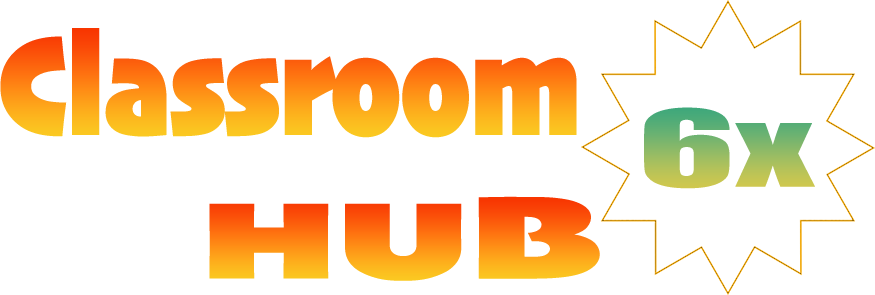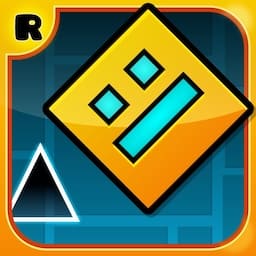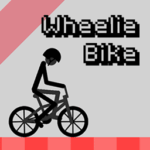Table of Contents
ToggleIntroduction to Geometry Dash
Why does Geometry Dash still have players smashing their keyboards in 2025? Because it’s chaos—in the best possible way. Developed by RobTop Games and launched in 2013, this side-scrolling rhythm platformer blends twitch reflexes with pulse-pounding music. You control a tiny, customizable cube that jumps, flips, and flies through a neon-colored obstacle course… all perfectly timed to an electrifying beat.
It looks simple at first. One tap to jump. That’s it. But then the beat drops—and so does your confidence. Available on Android, iOS, Windows, and macOS, Geometry Dash is the kind of game that hooks you fast… and won’t let go.
Gameplay Overview & Objective
In Geometry Dash, the screen never stops moving. Levels auto-scroll from left to right, forcing you to react in real time. Your only job? Tap to jump. Or hold to keep jumping. That’s all it takes—on paper.
But in action, it’s a fast-paced dance of dodging spikes, hopping over platforms, flipping gravity, and flying through tight spaces. Every jump must sync with the beat, because each level is set to its own custom soundtrack. The music isn’t just background noise—it’s your lifeline. One mistimed tap, and it’s back to the beginning.
There are no checkpoints in normal mode. No second chances. You’ll feel the tension rise as you near the finish line—and the frustration (or joy) when you finally make it.
Key Features That Set It Apart
What makes Geometry Dash stand out isn’t just the challenge—it’s how that challenge feels. Every tap syncs with a beat, creating a rhythm-based flow that’s oddly satisfying once you get into it. You’re not just jumping over spikes; you’re performing a routine, like a dancer reacting to every beat drop.
There’s more under the hood, too. You can unlock icons, trail effects, colors, and even death animations to personalize your cube. One moment, you’re flying a rocket through a zigzag tunnel. The next, you’re flipping gravity upside down mid-jump.
When it gets too tough (and it will), Practice Mode lets you place checkpoints, helping you break each level into smaller battles. And if you’re feeling creative? The level editor is powerful—people have built some of the most punishing levels I’ve ever attempted. Best part? No ads, no in-app purchases. Just skill.
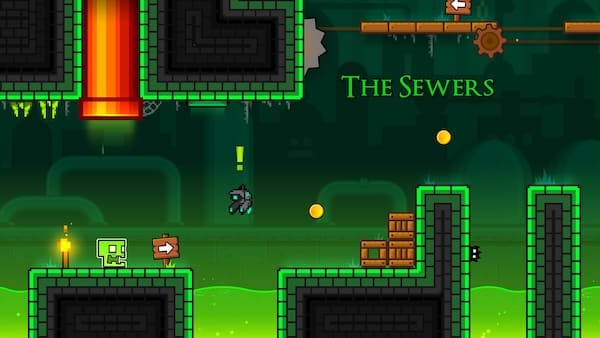
Control Scheme & Platforms
Controls:
- Tap the screen or press the Space or Up Arrow key to jump
- Hold it down to keep jumping.
That’s really all you need to do.
Whether you’re on a touchscreen, using a keyboard, clicking a mouse, or even holding a controller, the game reacts instantly. It’s available on Android, iOS, Windows, and macOS, so you can jump in no matter what device you’re using. Just don’t expect it to go easy on you.
Beginner Tips & Tricks
If you’re just starting out in Geometry Dash, the best advice I can give is this: don’t rush. Begin with the official levels—they’re designed to teach you the core mechanics step by step. I spent my first few hours just replaying “Stereo Madness” until the timing became second nature. It’s more than just jumping—it’s about learning how the game feels.
Use Practice Mode early and often. It lets you drop checkpoints wherever you want, which is a lifesaver when you’re stuck on one nasty triple spike jump for half an hour. Trust me, I’ve been there.
Ignore the secret coins for now. They’re often tucked away in ridiculous spots that’ll just frustrate you. Focus instead on reading visual cues—platforms that pulse or flash often mean something important.
Turn on the progress bar—watching your percentage rise gives you a real sense of, well, progress. And if you’re stuck, walk away for a bit. Some of my best runs happened after a break.
Repeating levels might seem boring, but it’s how you build rhythm. It’s how I finally beat Base After Base—on my 112th try.
Difficulty & Progression System
Geometry Dash doesn’t hold your hand, but it does teach you—slowly, then all at once. There are 26 official levels, starting with “Easy” and climbing all the way to “Demon,” which lives up to its name.
You’ll unlock tougher stages by collecting secret coins, some hidden in nasty corners that test your reflexes and memory. Each completed level gives you achievements, new icons, or colors, which makes progress feel earned.
The learning curve is steep but fair. I still remember the jump from Jumper to Time Machine—that was when things got real.
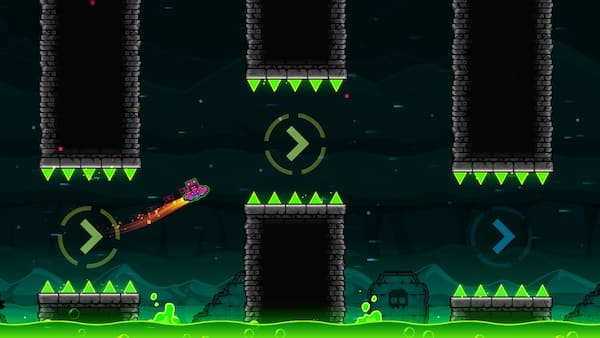
Player Customization & Community Content
One of the coolest parts of Geometry Dash is making the game feel like yours. You can unlock and customize your icon, pick colors, change death explosion effects, and even tweak the trail behind your cube. All of it is earned—no money needed, just progress.
Then there’s the level editor, which honestly blew my mind. I once spent three hours trying to beat a player-made gauntlet that was harder than any official level. The community is insanely creative, and there’s always a new challenge waiting if you think you’ve mastered the game.
Comparison With Similar Games
If you’ve played Flappy Bird, you already know how punishing a simple tap-to-jump game can be. Geometry Dash takes that idea and cranks it up with music, speed, and more ways to fail in style. Unlike Flappy Bird’s single mechanic, here you’re also flying rockets, flipping gravity, and riding platforms—all in sync with the soundtrack.
Compared to Subway Surfers, Geometry Dash is less about collecting coins and more about mastering rhythm and muscle memory. There’s no freemium grind or endless running—just handcrafted levels and one goal: finish.
Geometry Dash SubZero feels like a demo in comparison. It’s solid, but short. The full Geometry Dash offers a huge creative community and level editor, which is something these other games just don’t have.
Gamer’s Personal Review
“I’ve clocked over 40 hours in Geometry Dash, and every second has felt like a battle of focus and timing. It’s not just a game—it’s a test of patience. The soundtrack doesn’t just set the mood; it becomes the guide. When I finally beat ‘Electroman Adventures’ after days of trying, I actually yelled out loud. It’s hard, yes—but every success feels earned. No cheap tricks. Just you, the music, and your reflexes. That’s what keeps me coming back.”
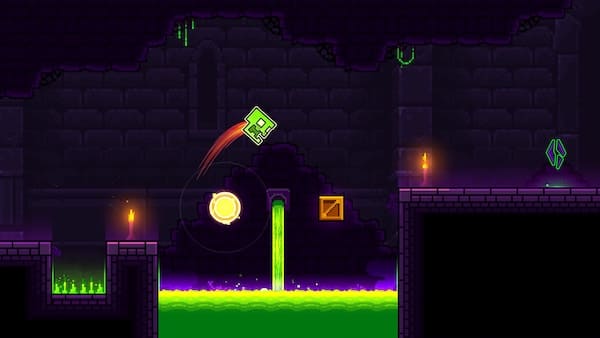
Why Geometry Dash Still Matters in 2025
More than a decade after its release, Geometry Dash still pulls players in—and keeps them hooked. Why? Because no other mobile game blends rhythm, reflexes, and frustration quite like this. It’s not about flashy graphics or gimmicks; it’s about mastering patterns, timing jumps, and feeling every beat.
The game continues to thrive thanks to regular updates and a massive player community. On YouTube, you’ll find creators pushing the limits of custom levels. On Discord, strategies and tips are constantly shared. Its simple, neon visuals and music-driven pacing don’t age. That’s why Geometry Dash still matters—it never stopped evolving.
Final Verdict: Is It Worth Playing?
If you enjoy games that challenge your reflexes and reward persistence, Geometry Dash is absolutely worth your time. It’s simple to pick up, hard to master, and endlessly replayable. With no ads, no paywalls, and a creative community that never stops building, it’s more than just a mobile game—it’s a rhythm-fueled test of skill and focus.
